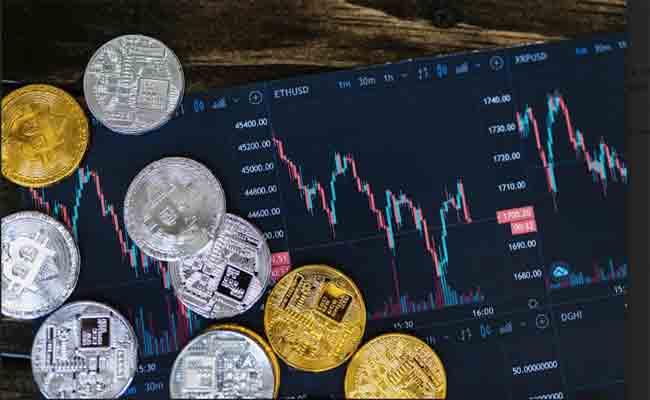All That You Wanted To Know About Cryptocurrency Derivatives

A crypto derivative is a contract or product whose price is determined by an underlying asset such as commodities, stocks, exchange rates, currencies, and rate of interest. This mechanism allows buyers and sellers to wager on the future value of the underlying asset to earn a profit.
This article explores all the essential fundamentals of crypto derivatives and derivative trading so that you can be better informed.
Derivative Trading - The rudimentary concept
In derivative trading, the underlying asset can be any cryptocurrency token where buyers and sellers enter into a financial contract. This contract speculates on the crypto's price on a future date.
• During its first phase, the contract allows both parties to agree on a selling/buying price for the crypto token on a specific day. This price is independent of the market price and doesn't get affected by related fluctuations.
• Consequently, the investors can thus profit from price alterations in an underlying asset's price in two ways. They can buy at a cheaper rate or sell at a higher price.
Where to trade derivatives?
You can trade derivatives in crypto tokens on centralized exchange platforms. Also, most decentralized exchanges allow this type of trade. These derivative trading platforms are much more flexible than any spot margin trading that gives you access to diverse markets, otherwise undiscovered.
Types of crypto derivatives - Most preferred options in the market
Depending on a contract's initial conditions, crypto derivatives can be any of the following types.
• Futures: Futures contract is a legal agreement between the buyer and seller. It revolves around buying or selling an underlying asset at a pre-determined price and date in the future.
• Options: Options offer the trader a choice but take away the responsibility to purchase or sell the underlying asset at a particular value in the future date and price.
• Perpetual contracts: A Perpetual contract, unlike futures or options, does not have any expiration or settlement date. Under specified circumstances, the traders open their positions to trade indefinitely.
• Swaps: A swap is a contract to exchange cash flows at a future date under the action of a pre-determined formula. These are over-the-counter contracts (OTC) and not traded on regulated exchanges.
• Forwards: A forward contract is a derivative instrument that uses a non-standardized contract to carry on the trade for the underlying asset at a future time and price.
Essential features of derivative trading
#1. Stop/Loss Take Profit:
Stop/Loss take profit is a mechanism that allows traders to specify the floor and ceiling values for a given order. As a result, they can exit the market automatically as the conditions become profitable.
#2. Auto Deleveraging (ADL):
ADL system of a crypto exchange automatically deleverages an opposing position from a designated trader when a position can't get liquidated at price more than the bankruptcy price. ADL also works if the insurance is insufficient to cover the loss incurred from the contract.
#3. Partial Close Orders:
This feature allows traders to obtain partial gains by partially closing their orders while they keep earning consistent profits from the growing market.
Benefits of derivatives
• Lower transaction fees: Typically, derivatives are risk management instruments, and hence they have a reduced market transaction cost, unlike other securities like spot trading.
• Risk management: The price of the crypto token's value has a relation to the contract's value. For this reason, traders use these derivatives to mitigate risks associated with fluctuating prices of underlying assets. Moreover, this risk is transferable to others.
• Efficient: The practice of arbitrage in derivative contracts ensures that the market finds equilibrium once the price of underlying assets is precise.
Drawbacks of using derivatives
• Highly speculative: There is no denying that derivative contracts work the best as speculative instruments. This risky nature makes the process unpredictable, resulting in hefty losses.
• The risk element is heavy: Although derivatives help mitigate the risk of the price fluctuations of the underlying crypto tokens, they are undoubtedly very volatile. It happens due to the fluxing value of crypto tokens after the contract is closed, which comes at a cost of the trader's money.
Final Thoughts - The future of the derivative market
According to experts, the crypto derivatives market is moving to notice an increase in the trading volume in the coming years. In the third quarter of 2020, the trade volume was around $2.7 trillion, a 25.1% increase from the previous quarter. This immense growth will be apparent in 2022 as the market keeps growing and involving traders worldwide.
Also Read: First Steps into Cryptoverse: What You Need To Know





